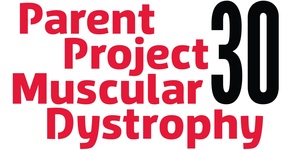PPMD and NHLBI Co-Sponsor Working Group Meeting Focused On Contemporary Cardiac Issues in Duchenne Muscular Dystrophy
HACKENSACK, N.J., July 9, 2014 /PRNewswire-USNewswire/ -- Parent Project Muscular Dystrophy (PPMD), the leading advocacy organization working to end Duchenne muscular dystrophy (Duchenne) has partnered with the National Heart, Lung, and Blood Institute (NHLBI) to convene a working group titled "Contemporary Cardiac Issues in Duchenne Muscular Dystrophy." The group, made up of top pediatric and adult cardiologists as well as clinical researchers, will meet July 10-11, 2014 in Bethesda, Maryland to address critical evidence gaps in the understanding of cardiac issues in Duchenne.
For the last several years, PPMD has been dedicated to cardiac issues in Duchenne, launching a Cardiac Initiative in 2011. According to PPMD's Vice President of Clinical Care, Kathi Kinnett, MSN, CNP: "Heart issues don't just affect some people with Duchenne; they affect all people with Duchenne. While advances in respiratory care have improved respiratory outcomes, dilated cardiomyopathy and heart failure remain the leading cause of death in Duchenne. The goal of this first Cardiac Working Group is to identify knowledge gaps in our understanding of the natural history, diagnosis, and treatment of Duchenne-associated cardiac disease and develop a research agenda to address these gaps. We are thrilled to be collaborating with NHLBI and look forward to reporting back to the community after this week's meeting."
The first meeting of the Cardiac Working Group will be structured around four topics and key questions within each topic:
- Natural history: Is there an association between cardiac fibrosis and cardiac dysfunction? What is the importance of genetic variants in cardiac dysfunction? Is there an association between cardiac fibrosis and cardiac arrhythmias? What is the true incidence of sudden cardiac death?
- Diagnosis and monitoring: What monitoring/imaging should be standard? When should monitoring start? What efforts are underway to advance knowledge and use of current, biomarkers and identify new cardiac biomarkers?
- Medical therapy: What is standard cardiac therapy? When should it be started? Are there lessons to be learned from adult heart failure? How will new skeletal muscle therapies affect the heart?
- Non-medical therapies: Are heart transplants and left ventricular assist devices viable options in Duchenne? When is ICD placement appropriate? Can the use of devices change the natural history of Duchenne?
The meeting will conclude with a detailed outline of next steps, recommendations, and a summary of the meeting to be published.
Funding for this meeting has been provided, in part, by John Owens Adventure, Inc., a nonprofit that funds awareness for chronic childhood illnesses, including Duchenne.
To learn more about PPMD's Cardiac Initiative and other cardiac care issues in Duchenne, visit PPMD's website.
About Duchenne Muscular Dystrophy
Duchenne muscular dystrophy is the most common fatal genetic disorder diagnosed in childhood, affecting approximately one in every 3,500 live male births (about 20,000 new cases worldwide each year). Because the Duchenne gene is found on the X-chromosome, it primarily affects boys; however, it occurs across all races and cultures.
Duchenne results in progressive loss of strength and is caused by a mutation in the gene that encodes for dystrophin. Because dystrophin is absent, the muscle cells are easily damaged. The progressive muscle weakness leads to serious medical problems, particularly issues relating to the heart and lungs. Young men with Duchenne typically live into their late twenties.
Duchenne can be passed from parent to child, but approximately 35 percent of cases occur because of a random spontaneous mutation. In other words, it can affect anyone. Although there are medical treatments that may help slow its progression, there is currently no cure for Duchenne.
About Parent Project Muscular Dystrophy
Duchenne is a fatal genetic disorder that slowly robs young men of their muscle strength. Parent Project Muscular Dystrophy (PPMD) is the largest most comprehensive nonprofit organization in the United States focused on finding a cure for Duchenne muscular dystrophy—our mission is to end Duchenne.
We invest deeply in treatments for this generation of young men affected by Duchenne and in research that will benefit future generations. We advocate in Washington, DC, and have secured hundreds of millions of dollars in funding. We demand optimal care, and we strengthen, unite and educate the global Duchenne community.
Everything we do—and everything we have done since our founding in 1994—helps boys with Duchenne live longer, stronger lives. We will not rest until every young man has a treatment to end Duchenne. Go to www.ParentProjectMD.org for more information or to learn how you can support our efforts and help families affected by Duchenne.
About National Heart, Lung, and Blood Institute
The National Heart, Lung, and Blood Institute (NHLBI) provides global leadership for a research, training, and education program to promote the prevention and treatment of heart, lung, and blood diseases and enhance the health of all individuals so that they can live longer and more fulfilling lives.
The NHLBI stimulates basic discoveries about the causes of disease, enables the translation of basic discoveries into clinical practice, fosters training and mentoring of emerging scientists and physicians, and communicates research advances to the public. It creates and supports a robust, collaborative research infrastructure in partnership with private and public organizations, including academic institutions, industry, and other government agencies. The Institute collaborates with patients, families, health care professionals, scientists, professional societies, patient advocacy groups, community organizations, and the media to promote the application of research results and leverage resources to address public health needs. The NHLBI also collaborates with international organizations to help reduce the burden of heart, lung, and blood diseases worldwide. Visit www.nhlbi.nih.gov to learn more.
SOURCE Parent Project Muscular Dystrophy (PPMD)
WANT YOUR COMPANY'S NEWS FEATURED ON PRNEWSWIRE.COM?
Newsrooms &
Influencers
Digital Media
Outlets
Journalists
Opted In





Share this article